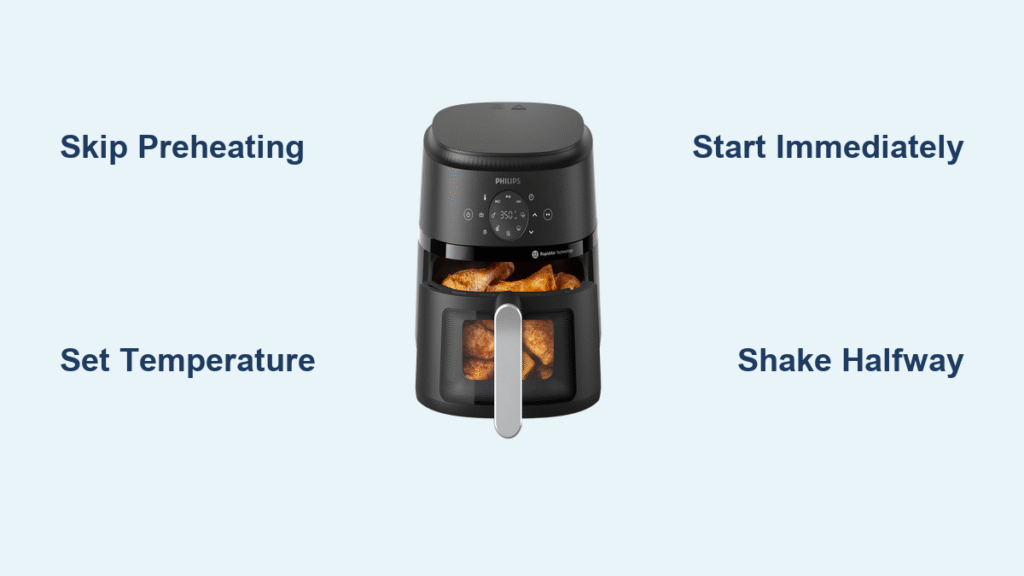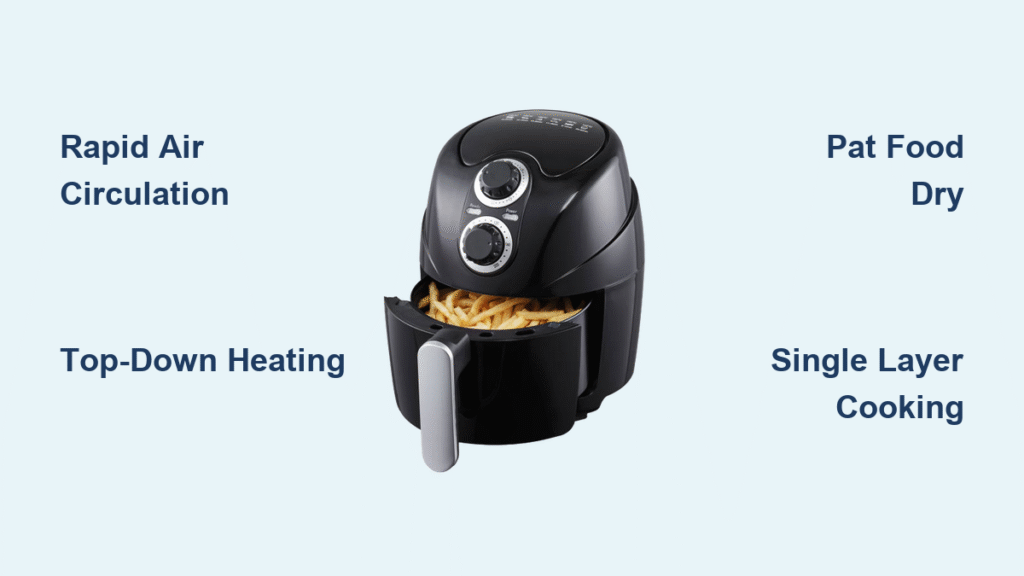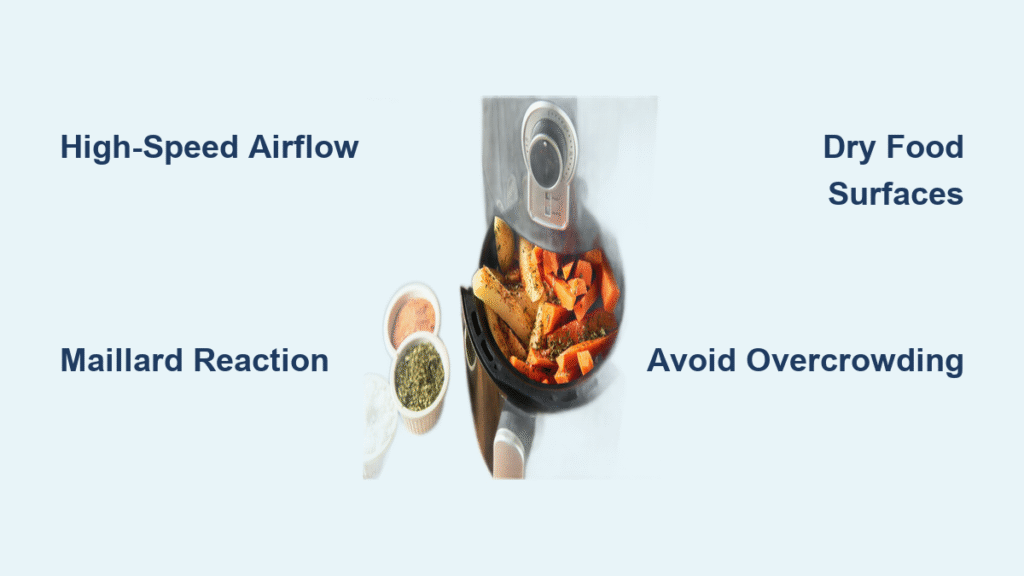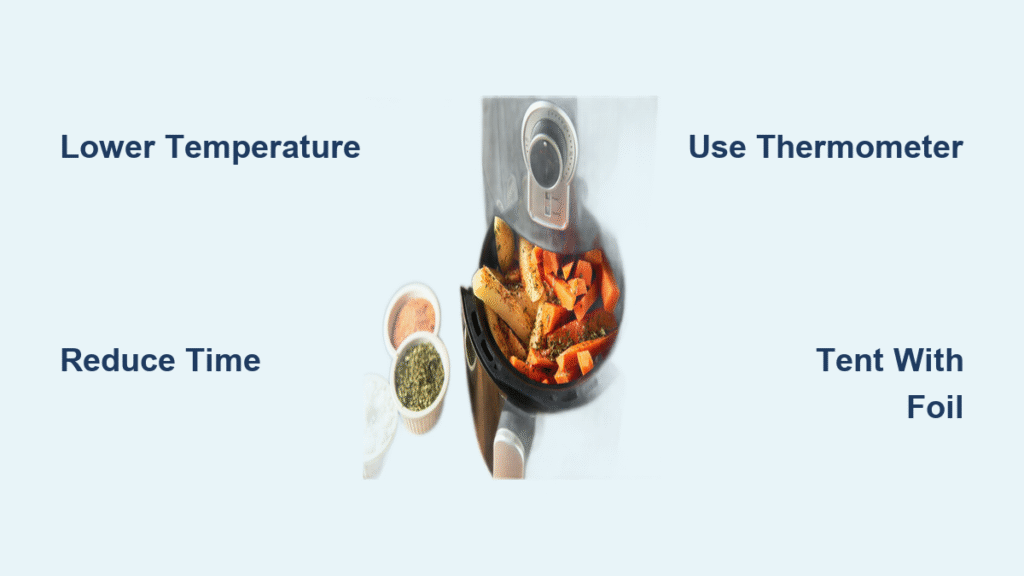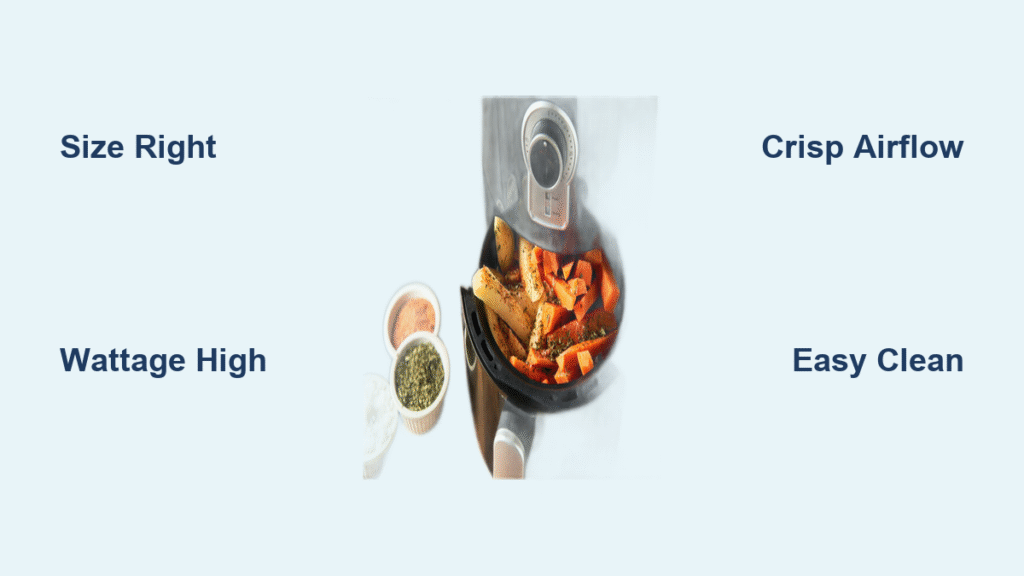You’ve probably searched “how to preheat Philips air fryer” because you’re used to preheating traditional ovens or other air fryer brands. Here’s the surprising truth: your Philips Airfryer doesn’t need preheating at all. Unlike conventional cooking appliances that require a 3-5 minute warm-up period, Philips engineered their air fryers to start cooking at full efficiency the moment you press start. This revolutionary design eliminates wasted time and energy while delivering consistently crispy results from your very first use.
If you’ve been waiting for your Philips Airfryer to preheat, you’ve actually been making a common mistake that could be affecting your cooking results. This guide reveals exactly why Philips designed their air fryers to skip preheating entirely, what you should do instead, and how to get restaurant-quality results without any waiting period. You’ll discover the science behind this time-saving feature and practical techniques to maximize your cooking efficiency starting today.
Philips Air Fryer Requires Zero Preheating Time
Official Philips Position on Preheating
Philips explicitly states in their user manuals that preheating is unnecessary for their Airfryer models. The manufacturer designed their rapid air circulation technology to reach optimal cooking temperature within seconds of activation. When you place food in the basket and press start, the heating elements and fan work together to create the perfect cooking environment immediately—no waiting required.
This isn’t a recommendation; it’s a fundamental design feature. Your Philips Airfryer compensates for the initial temperature difference during the first minute of operation, ensuring your food begins cooking at the correct temperature right away. The digital display shows the target temperature almost instantly because the system is engineered to achieve consistent heat distribution without a preheating phase.
Why Other Brands Require Preheating
Most competing air fryers and traditional ovens need preheating because they rely on slower heating elements that create uneven temperature distribution initially. These appliances develop hot and cold spots that can negatively impact cooking results if food is added too soon. Philips solved this problem through three key innovations:
- Twin turboStar technology creates immediate, even heat circulation from the first second
- Optimized heating element placement ensures rapid temperature stabilization
- Precision airflow design eliminates cold zones without requiring warm-up time
This engineering approach means your Philips Airfryer delivers consistent results whether you’re cooking the first batch of the day or your fifth consecutive recipe.
Step-by-Step: How to Use Your Philips Air Fryer Without Preheating

Immediate Cooking Method That Works
Follow this exact sequence every time you use your Philips Airfryer for perfect results:
- Prepare your ingredients completely before placing them in the basket
- Arrange food in a single layer to ensure proper air circulation
- Set your desired temperature using the digital controls (typically 350-400°F for most foods)
- Input the cooking time based on your recipe requirements
- Press start immediately—no waiting period needed
This streamlined process saves you valuable time while producing superior results compared to preheating. The system automatically adjusts during the first minute to account for the initial temperature difference, so your food receives consistent heat from start to finish.
Food Preparation Best Practices Without Preheating Time
Since you won’t have a preheating window to prepare ingredients, optimize your workflow with these techniques:
- Prep everything in advance before turning on the appliance
- Pat proteins dry with paper towels to maximize crispiness
- Toss vegetables in minimal oil (1-2 teaspoons) for even browning
- Season foods thoroughly before placing in the basket
- Shake the basket halfway through cooking to promote even results
Pro tip: While your current batch cooks, prepare the next ingredients to maintain continuous cooking flow—especially useful when preparing multi-course meals.
Common Preheating Myths Debunked for Philips Air Fryers
“Preheating Creates Crispier Food”
This widespread misconception comes from traditional oven cooking where a hot environment is essential for crispiness. Your Philips Airfryer achieves maximum crispiness through continuous high-velocity air circulation that begins the moment you press start. The immediate exposure to moving hot air extracts moisture from food surfaces more effectively than static preheated environments.
“Without Preheating, Food Cooks Unevenly”
Philips’ extensive testing shows no difference in cooking uniformity between preheated and non-preheated batches. The rapid air technology ensures consistent results regardless of starting temperature because the airflow system creates even heat distribution from the first second. Uneven cooking typically results from overcrowding the basket or failing to shake ingredients midway—not the absence of preheating.
“Preheating Saves Energy in the Long Run”
Actually, eliminating preheating saves approximately 15-20% in total energy consumption per cooking session. Running your appliance empty for 3-5 minutes before adding food wastes electricity without contributing to the cooking process. Your Philips Airfryer’s efficient design means it uses energy only when actively cooking your food.
Maximizing Results Without Preheating
Temperature Adjustments for Different Foods
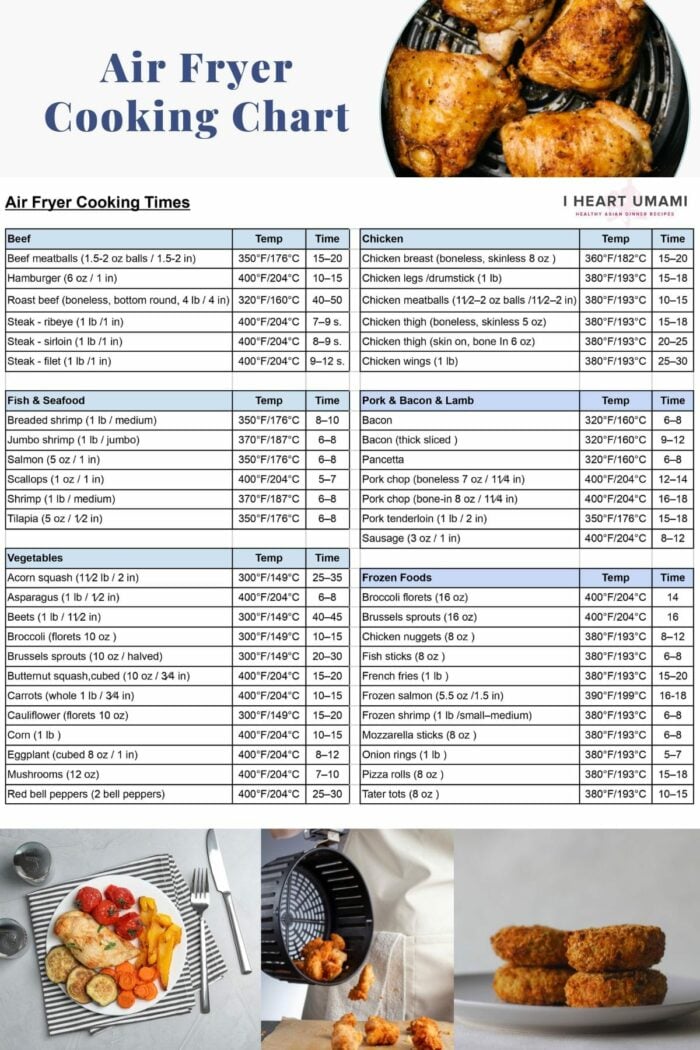
While no preheating is needed, these minor adjustments optimize your results:
- Frozen foods: Add 1-2 minutes to cooking time to compensate for initial temperature
- Fresh vegetables: Cook as directed with no adjustments needed
- Meats: Verify internal temperature with a meat thermometer for food safety
- Baked goods: May require 1 minute less cooking time due to rapid heat-up
Timing Guidelines by Food Type
| Food Category | Standard Time | Cold Start Adjustment |
|---|---|---|
| Frozen fries | 15-18 minutes | +1-2 minutes |
| Fresh chicken | 20-25 minutes | No change |
| Vegetables | 8-12 minutes | No change |
| Fish fillets | 10-12 minutes | +1 minute |
| Reheating leftovers | 3-5 minutes | No change |
Visual Doneness Indicators
Without preheating cues, watch for these visual signs that your food is perfectly cooked:
- Golden brown color on exterior surfaces with no pale patches
- Crispy texture when shaken gently in the basket
- Internal temperature reaches safe levels (use a thermometer for meats)
- Reduced sizzling sound indicating moisture has evaporated
Troubleshooting Common Issues Without Preheating
When Food Appears Undercooked
If your results seem undercooked, the problem isn’t the lack of preheating:
- Check basket capacity—overcrowding extends effective cook time
- Verify temperature setting—ensure digital display shows correct value
- Shake or flip food midway through cooking for even exposure
- Reduce batch size for better air circulation around each piece
Solving Cold Spot Issues
True cold spots indicate user error, not a need for preheating:
- Never stack food—always arrange in a single layer
- Shake basket every 5-7 minutes during cooking
- Increase temperature by 25°F if food releases excessive moisture
- Use smaller batches for optimal airflow around each item
Processing Multiple Batches Efficiently
For consecutive cooking sessions, Philips Airfryers maintain peak performance:
- Add new food immediately after removing the previous batch
- No cooling period required between batches
- Maintain identical settings unless changing food types
- Quickly wipe basket if residue builds up between batches
Time and Energy Benefits of Skipping Preheating
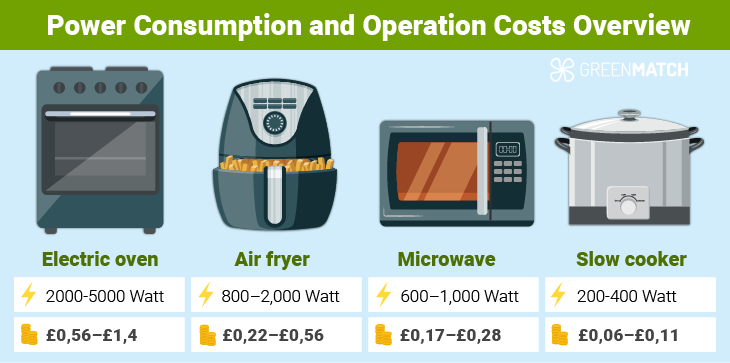
Daily Time Savings Breakdown
Eliminating preheating creates significant cumulative time savings:
- 3-5 minutes saved per cooking session
- 15-25 minutes weekly for daily users
- Over 2 hours monthly of reclaimed cooking time
- Immediate meal preparation for busy schedules
Energy Conservation Impact
Your Philips Airfryer’s no-preheat design reduces your environmental footprint through:
- Zero idle operation time
- Reduced total runtime per cooking session
- Lower electricity consumption over the appliance’s lifetime
- More efficient energy use compared to traditional cooking methods
Real-World Usage Examples
Weeknight dinners: Begin cooking chicken breasts the moment you walk in the door—no extra 5-minute wait before starting.
Morning routine: Cook frozen hash browns while your coffee brews, with no separate preheating step.
Batch cooking: Process multiple vegetable batches back-to-back without cooling periods or preheating delays.
Maintenance Without Preheating Considerations
Cleaning Protocol Between Uses
Since there’s no preheating residue to worry about:
- Wipe basket with a damp cloth after cooling
- Remove and wash basket and tray after every 3-5 uses
- Check heating element monthly for debris accumulation
- Descale interior quarterly with a vinegar solution
Performance Monitoring Tips
Track your appliance’s efficiency without preheating variables:
- Record cook times for consistent recipes to identify performance changes
- Adjust settings based on actual results rather than recipe recommendations
- Replace worn baskets that restrict airflow and affect cooking results
- Contact Philips support if you notice significant changes in cooking performance
Key takeaway: Your Philips Airfryer delivers perfect results when you skip preheating entirely. Place prepared food directly in the basket, set your temperature and time, and start cooking immediately. This simple approach saves valuable time, conserves energy, and produces consistently crispy, evenly cooked meals from your very first use. Stop waiting for preheating—your perfectly cooked meal is just a button press away.

